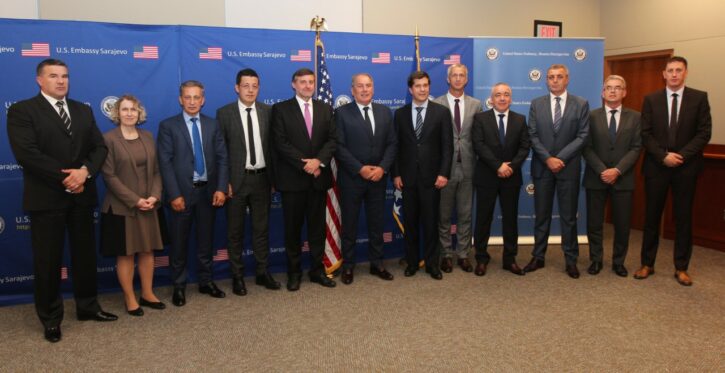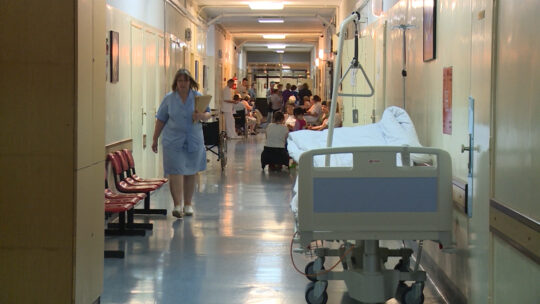
Instead of addressing the migrant issue through a coordinated solution, Bosnia's entities have taken steps to create police reserve forces which would not address the migrant problem, since migration is transnational and cannot be solved by unilateral efforts, US Embassy said, Monday, after the meeting between the Deputy Assistant Secretary of State Matthew Palmer and Ambassador Eric Nelson with high-level officials from across Bosnia.
“Instead, Bosnia needs better trained, more specialized, properly equipped and interoperable police that are responsible and accountable first and foremost to citizens,” the Embassy said after a meeting attended by Bosnia's Ministry of Security, Border Police, Intelligence and Security Agency, and the Ministries of Interior of the Brcko District and the Federation (FBiH), and Republika Srpska (RS) entities.
After the 1992-95 war, Bosnia was divided into two semi-autonomous regions, the RS and FBiH. Each entity has its own government, parliament and police. The 2008 police reform supervised by the international community formed the state-level police, but those in the two entities remained.
Deputy Assistant Secretary Palmer and Ambassador Nelson hosted high-level officials from across BiH at the embassy to discuss the critical need for increased and improved coordination among all law enforcement and security agencies in the country.
The group focused on the need for enhanced cooperation which is most urgent to address the increased number of migrants entering Bosnia.
During the meeting, Palmer and Nelson encouraged Bosnian officials to deploy state resources to shoulder the burden borne by local authorities disproportionately, quickly make available appropriate locations where migrants can be securely accommodated, and improve mechanisms that enable institutions to better work together to address this regional problem., the Embassy statement said.
They discouraged local actors from duplicating effort and acting unilaterally.
The Embassy said the two also encouraged local actors to better use international expertise and partnerships, like those with NATO and EUROPOL, to strengthen Bosnian and regional security.
Prior to the meeting, Ambassador Nelson and Deputy Assistant Secretary Palmer travelled to Northern-Bosnian town of Bihac where they heard firsthand about the need to improve coordination and the negative consequences of not cooperating to address the migrant situation.
Bihac, and the entire Una-Sana Canton whose administrative centre is in Bihac have been struggling with the migrant situation the most because the region is bordering Croatia and all the migrants entering the country from Serbia and Montenegro are heading that way, because its two largest towns, Bihac and Velika Kladusa are very near the EU border.
Estimates say that some 8,000 migrants, mostly Afghans and Pakistanis are located there, and the State authorities expect more migrants to come.
The US diplomats agreed that better coordination and allocation of existing resources is the best way for authorities to immediately strengthen Bosnia's safety and security, the Embassy said, adding that the United States will continue to assist law enforcement agencies that seek to address security challenges the right way — through increased coordination and professionalization.
“Our assistance, however, will be directed to those police agencies and governments that are taking positive steps to achieve effective outcomes, and that share our priorities and goals,” the Embassy noted.
The United States devotes substantial resources to help develop professional, capable, accountable law enforcement officers who work together to ensure security in Bosnia and Herzegovina.
In 2018, the United States trained 1,340 officers and held 126 law enforcement training courses. In 2019, we will again provide millions of dollars of security assistance to BiH.
Thirty percent of our security assistance is targeted to border security.





